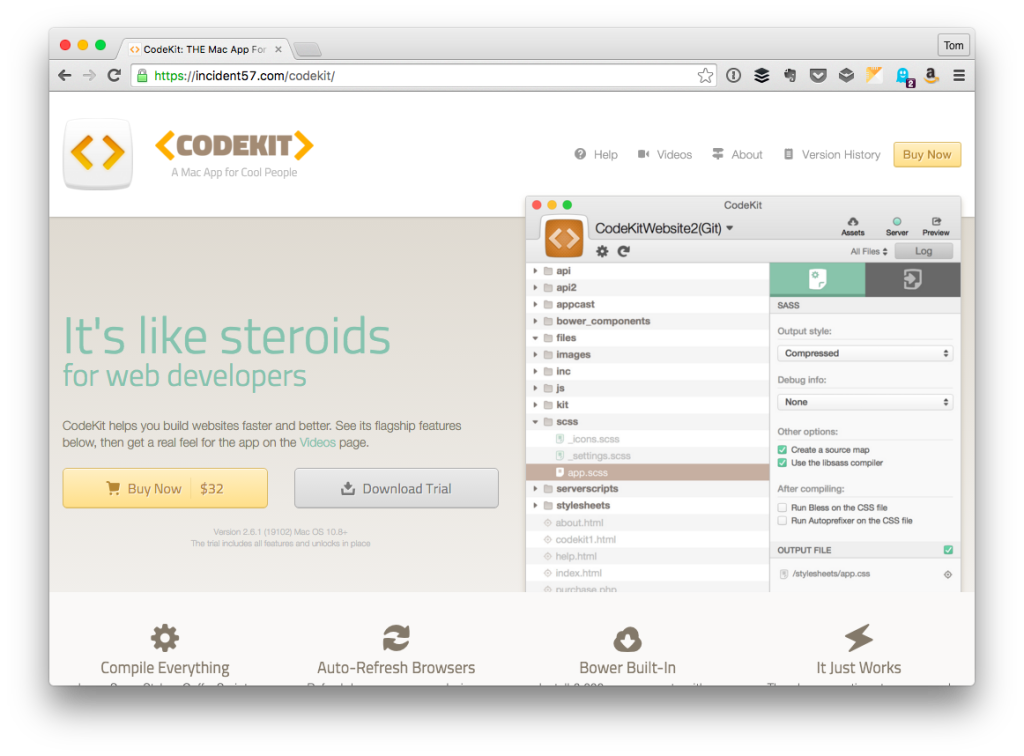Perhaps one of the most tiring things of working in development in staying up to date with all of the various tools and processes available to us for helping us get our work done.
As soon as one comes out we even come close to mastering (and I use that term loosely), there’s a new dependency manager, process, server configuration, whatever, to learn and to see if it fits into our workflow.
All the while, many of us want to find the most streamlined process available for us to efficiently do our work and build our projects with as much optimization as possible.
So it’s like we’re faced with this dilemma:
Stay up to date with all of the new tools that are available or stick with what we know and hope that we don’t become irrelevant?
It sounds a bit like hyperbole, but you know the feeling I’m talking about, right?
Simplifying Our Tools
To be a little clear, it’s not so much I think we’d become irrelevant, but it does leave us wondering if we’re using the best tools possible for our work.
And in order to evaluate, we have to try the tools out in the context of a project. If it works out, great! We’ve found something new.
- If not, then are we losing time? Maybe.
- Are we losing billable hours? Maybe. (I guess that depends on how your structured the project.)
- Are we completely wasting time? I guess it depends on if you think learning something you’ll never use again is a valuable use of your time. That isn’t sarcasm, either. I legitimately mean that.
Then again, is it worth doing when you have something you know works, does the job well?
My Case in Point
I’ve written about CodeKit before. I know there are a lot of popular build tools are out there specifically tailored for Sass, JavaScript linting, package management, dependency management, minification, combination, and on and on.
Things like Grunt, Gulp, etc. They are all great (and yes, I’ve used them for various projects), but I personally find myself coming back to CodeKit for the majority of my projects.

The reason I mention this is sometimes it’s frowned upon. Some people – as is true in a variety of areas of development – tend to view the tools they use as the epitome of what the rest of us should use.
You know how it goes.
You don’t use X, Y, and Z? You use CodeKit?
Yep – I do. And here’s why: When it comes to productivity and trying to get my workflow to be as efficient as possible while also optimizing the development work I do each day, CodeKit fits the bill.
For me.
It’s Not For You (Or Maybe It Is)
The purpose of saying this isn’t to try to convince you to use it. I’ve no stake in the game. It’s to remind you – and me, if I’m being honest – you need to explore and stick with the tools that streamline our workflow as much as possible.
We need to stay focused on simplifying our tools to the point where we’re efficient, practical, and optimal and completing projects.
When something new comes out, sure, consider using it, but don’t do it at the expense of using it for the sake of using it. Use it if it helps you do what you’re doing better.
Will I always stick with CodeKit? I don’t know. For now, I am but that’s because it helps me simplify my workflow while also maintaining the levels of control I need for the things I’m building.
But it’s a good thing we have choices, right? Ultimately, I may need something different.


Leave a Reply
You must be logged in to post a comment.